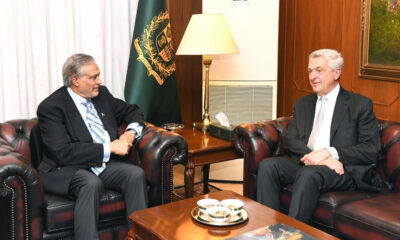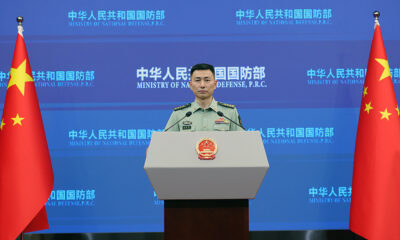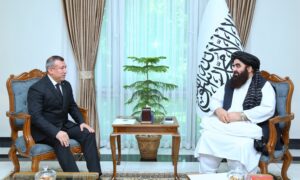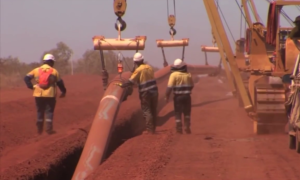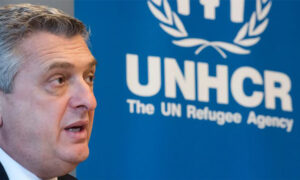Latest News
It’s too early to consider recognition of IEA: US
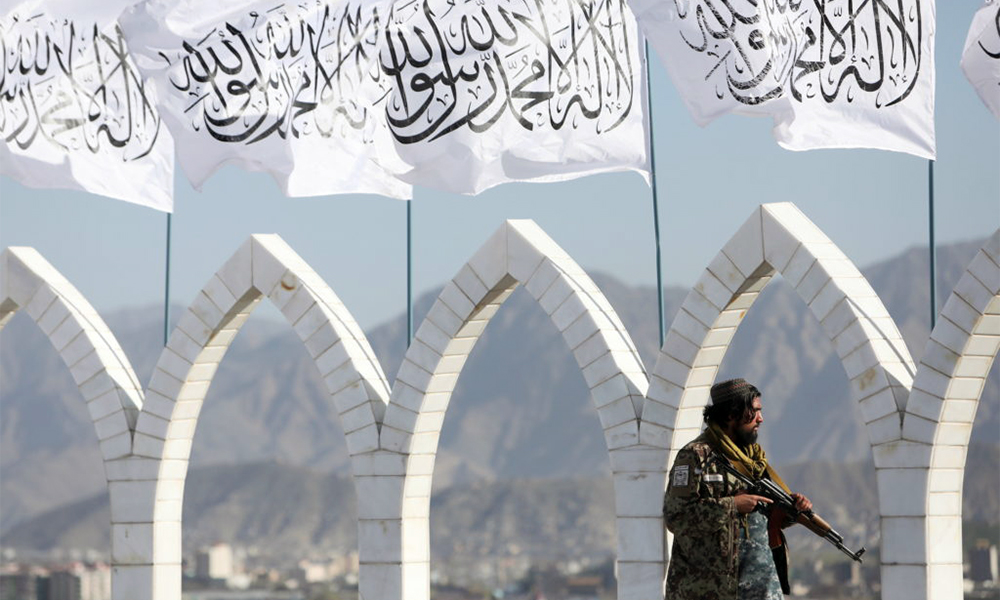
The United States said Wednesday no foreign government is contemplating legitimacy for the new government in Afghanistan.
“I think there’s actually a global consensus to include Moscow and Beijing and Iran, that it’s too early to look at recognition,” Donald Lu, U.S. assistant secretary of state for South and Central Asia, told VOA in an interview.
“Yes, some countries are beginning a very slow process of normalization of relations. No one is talking about formal recognition,” Lu said.
The U.S. diplomat noted that international discussions instead were focused on seeking an engagement with the IEA that can help improve the situation on the ground in Afghanistan in terms of the rights of women and girls, and security.
“We, as partner countries, should also be working with authorities in Afghanistan to create a better world for Afghan people to try to influence what is happening in Afghanistan for the betterment of the people of Afghanistan, but also a stable region.”
The IEA seized power last August when U.S. and NATO partners withdrew their final troops, ending almost two decades of foreign military intervention in the country.
The US urges the IEA to remove sanctions on women, reopen girls’ schools above the sixth grade and allow them to have access to work if it wants to be recognized.
“It’s critical that all of us work together to try to encourage the Taliban (IEA) onto a constructive path,” Lu said. He emphasized the IEA “now has to get to the business of governance.”
Washington has made it clear repeatedly that no legitimacy is possible unless and until the IEA reverse their restrictions on women and induct representatives of other ethnic Afghan groups into the government.
Lu cautioned the IEA rulers that the investment made by the global community over the past 20 years “will shape the future” of the country, and they “cannot merely impose their own will” on millions of Afghans.
Lu said that the IEA supreme leader renewed his resolve Wednesday in a message he issued in connection with this week’s Muslim festival of Eid-ul-Adha.
“The Islamic Emirate is committed to upholding all the rights of its citizens, as Islam commands us to grant and protect the rights of all people. And within the framework of the Sharia law, the rights of women will be ensured,” IEA’s supreme leader said.
“Within the framework of mutual interaction and commitment, we want good, diplomatic, economic and political relations with the world, including the United States, and we consider this in the interest of all sides,” Mullah Haibatullah Akhunzada further added.
Neighboring and regional countries, including China and Pakistan — which shares a long border with Afghanistan — have kept their diplomatic and trade contacts open with the IEA, citing dire humanitarian and economic emergencies facing the country’s estimated 40 million population.
But these nations also are pressing the IEA to rule the country through a politically inclusive administration, ease curbs on women and desist from cracking down on dissent before they decide to consider the IEA’s call for a formal recognition of their government.
“We hope Afghanistan to be stable, peaceful, pursues a moderate policy and to meet the expectations,” said Wang Yu, China’s ambassador to Kabul, while addressing a rare news conference Tuesday in the Afghan capital.
Lu told VOA that Central Asian countries also are worried about security threats coming from Afghanistan. The U.S. is talking with them about how it can help with cross-border security and “facilitate conversation with this very unusual IEA’s government,” he added.
Meanwhile, Akhundzada reassured Afghanistan’s neighbors and the world at large Wednesday that the IEA would not allow anyone to use their territory to threaten the security of other countries.
In his Eid message, the leader of the Islamic Emirate called for diplomatic relations with all countries, including the United States.
Russia, China, Iran, Pakistan, Qatar, UAE, Turkey, India, and even Saudi Arabia, which are important regional countries, have asked the Islamic Emirate to create an inclusive government, but the IEA considers the current system to be inclusive.
Latest News
US Congress to hold meeting to review situation of Afghan women

The U.S. Congressional Human Rights Commission said in a statement it will hold a meeting on Tuesday this week to review the situation of Afghan women.
This meeting will be held on Tuesday next week with the presence of Rina Amiri, the US special representative for Afghan women’s affairs, Heather Barr, director of the Women’s Rights Division at Human Rights Watch and a number of other Afghan women.
Based on the statement of the commission, the participants of this meeting will review the human rights issues including the situation of women and girls in Afghanistan and provide recommendations for the action of the US Congress.
“Since August 2021, the situation of Afghan women and girls has significantly worsened. A growing list of severe restrictions imposed by the Taliban has severely reduced women’s ability to participate in public life,” the statement read.
This commission also pointed to the prohibition of women from work and denial of access to education, adding that the control over women’s private lives has increased.
Meanwhile, the Islamic Emirate has always rejected concerns about the violation of women’s rights in Afghanistan and emphasized that it is committed to respecting women’s rights in accordance with Islamic Sharia.
Latest News
Pakistan and Turkmenistan agree to fast-track gas pipeline project involving Afghanistan and India
The Turkmenistan-Afghanistan-Pakistan-India (TAPI) pipeline will originate from Galkynysh, the world’s second-biggest gas field, and end at the Indian city of Fazilka near the Pakistan border.
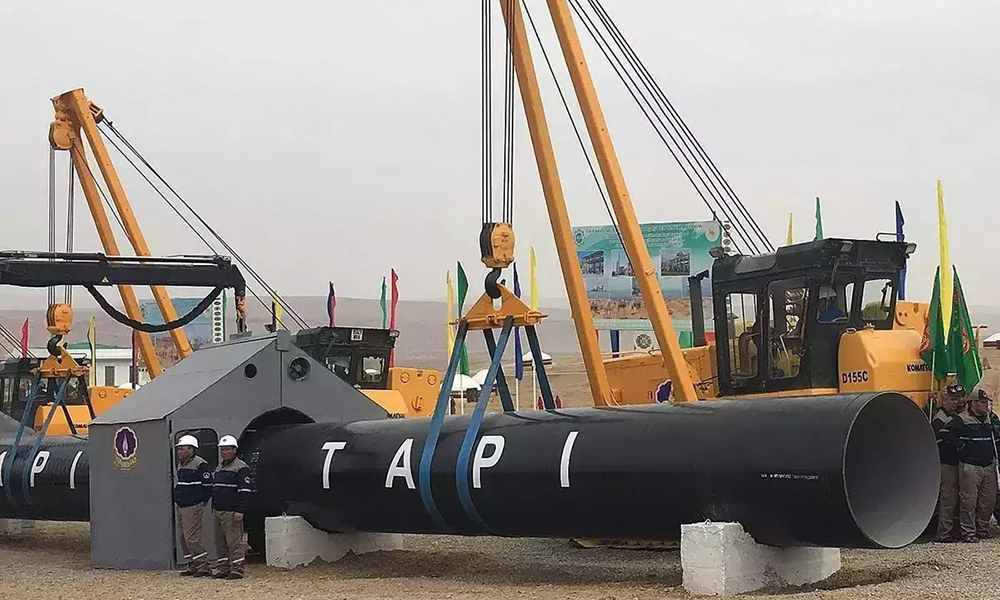
Pakistan and Turkmenistan agreed on Wednesday to fast-track a major pipeline project that will allow the Central Asian state to supply natural gas to Pakistan and India via Afghanistan, thereby enhancing economic activity across the region and benefiting all involved countries.
The understanding between the two states was reached during a meeting between Federal Minister for Petroleum Dr. Musadik Malik and Turkmenistan’s Foreign Affairs Rasit Meredow who arrived on a two-day visit to Islamabad on Tuesday.
The Turkmenistan-Afghanistan-Pakistan-India (TAPI) pipeline will originate from Galkynysh, the world’s second-biggest gas field, and end at the Indian city of Fazilka near the Pakistan border.
If the project is implemented, it will help Turkmenistan supply about 33 billion cubic meters (bcm) of natural gas each year along a route covering a distance of over 1,800 kilometers.
According to an official statement released by the Ministry of Energy’s Petroleum Division, Pakistan and Turkmenistan are working to “expedite” the pipeline project.
“TAPI pipeline project will lower energy costs, which can boost industrial growth, create jobs and foster economic development,” it quoted Pakistan’s petroleum minister as saying during the meeting. “Reliable and affordable energy supplies are vital for industrial sectors and overall economic stability.”
“This project, aimed at fostering economic integration and energy security, has witnessed substantial progress through collaborative efforts,” he continued, stressing the importance of continued engagement between the two countries.
Malik added Pakistan was fully committed to the project which was vital for regional energy cooperation and infrastructure development.
The visiting dignitary expressed appreciation for the warm welcome extended to his delegation by the Pakistani authorities.
“Together we will chalk out a roadmap for cooperation between both countries,” he added.
The meeting was also attended by the CEO of TAPI Pipeline Company Limited.
Other participants of the meeting emphasized the project’s strategic importance in enhancing regional connectivity, promoting economic growth and meeting the energy demands of participating nations.
The TAPI project was envisaged in the early 1990s and officially agreed upon in December 2010.
It has primarily been delayed due to security concerns, geopolitical tensions, funding challenges and bureaucratic hurdles.
Related Stories:
Acting FM discusses TAPI project with Turkmenistan’s envoy in Kabul
Latest News
Pakistan, UNHCR agree on lasting solutions for afghan refugees
The recent attacks and violent demonstrations by Afghani diaspora against Pakistan’s Diplomatic Missions in Frankfurt, London and Brussels also came under discussion, Radio Pakistan reported.
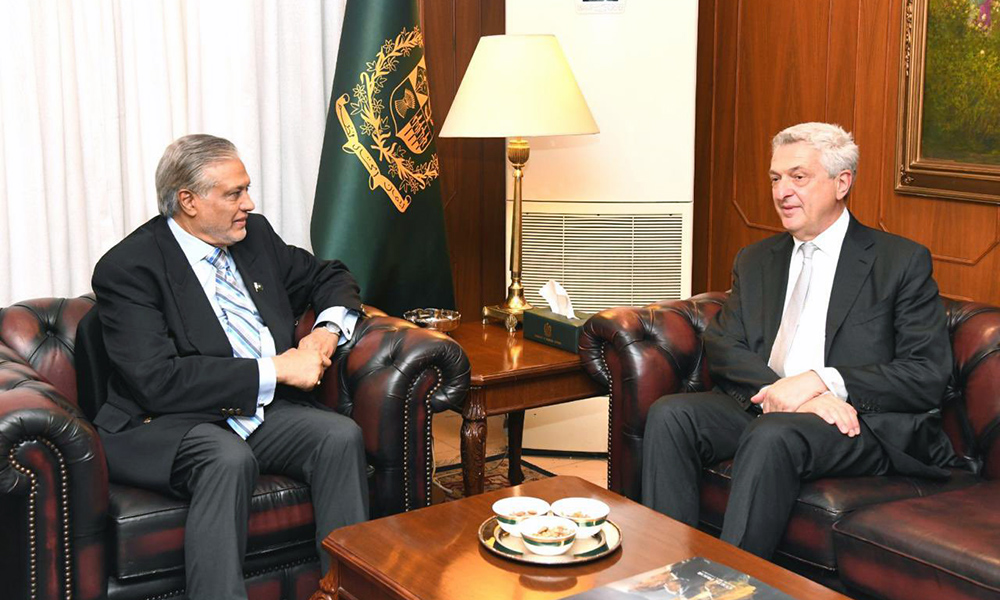
Pakistan’s Deputy Prime Minister and Foreign Minister Mohammad Ishaq Dar on Friday held a telephonic conversation with the United Nations High Commissioner for Refugees Filippo Grandi.
They discussed matters related to Pakistan-UNHCR cooperation.
The recent attacks and violent demonstrations by Afghani diaspora against Pakistan’s Diplomatic Missions in Frankfurt, London and Brussels also came under discussion, Radio Pakistan reported.
The High Commissioner appreciated Pakistan’s traditional hospitality towards Afghan refugees, in particular the recent decision by the Government of Pakistan to extend the validity of Proof of Registration Card.
Deputy Prime Minister and Foreign Minister and the High Commissioner agreed to continue to work together to advance Pakistan-UNHCR cooperation and find lasting solution to the issue of Afghan refugees, read the report.
This comes after the Ministry of Refugees and Repatriation of Afghanistan has announced that Pakistan has extended the POR (Proof of Registration) cards for Afghan refugees for another year.
On Thursday, July 25th, the Ministry reported on X that the Afghan Commissioner for Refugees in Islamabad confirmed the extension of POR cards for Afghan refugees residing in Pakistan. The new validity of these cards is from June 1, 2024, to June 30, 2025.
This extension comes amid rising tensions as the Pakistani government has been deporting over two thousand individuals daily. Despite the extension, Afghan refugees holding POR cards are increasingly concerned about the possibility of forced deportation to Afghanistan.
Related Stories:
Longer-term solutions needed for issue of Afghan refugees in Pakistan: UNHCR chief
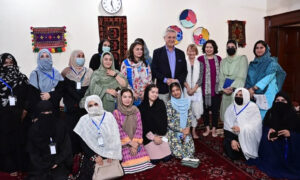
UNHCR chief discusses Afghan refugee issue with Pakistan’s deputy PM
-

 Sport4 days ago
Sport4 days agoOlympics finally here; What you need to know
-

 Latest News5 days ago
Latest News5 days agoOCHA reports 110 die in landmine explosions in Afghanistan every month
-

 Regional5 days ago
Regional5 days agoChina braces for twin tropical cyclones after deadly flash floods
-

 World5 days ago
World5 days agoBiden ends failing reelection campaign, backs Harris as nominee
-

 Health4 days ago
Health4 days agoHealth partners provide services 589,205 people in Afghanistan in last month
-

 Latest News3 days ago
Latest News3 days agoAfghanistan’s Hajj ministry confirms death of 27 pilgrims in Mecca and Medina
-

 Business4 days ago
Business4 days agoConference on Islamic microfinance kicks off in Kabul
-

 Sport4 days ago
Sport4 days agoACB proposes ODI fixtures against top-tiered teams










